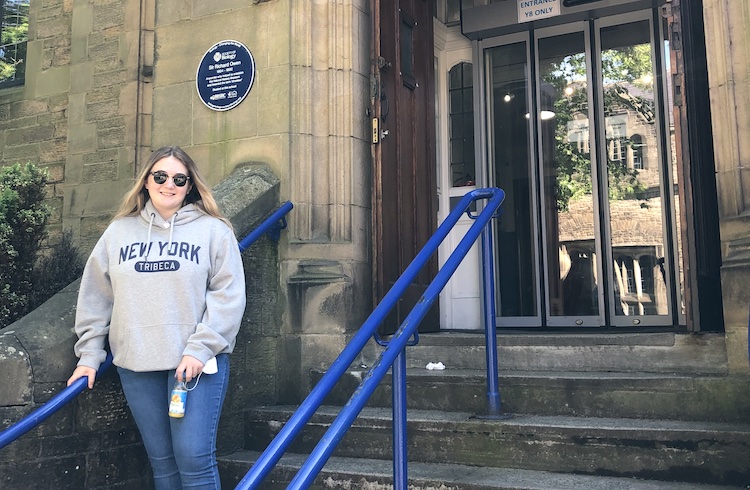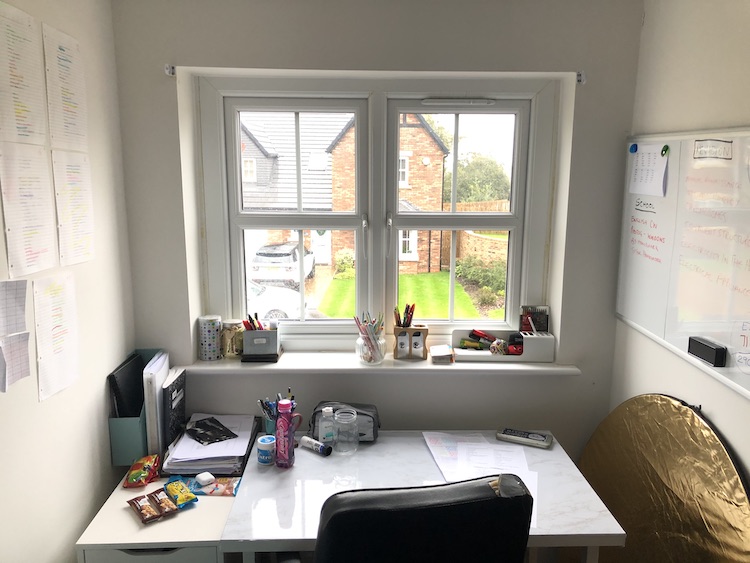 How to Prepare for Sixth Form
How to Prepare for Sixth Form
Looking for tips about how to prepare for sixth form?
This year, life has really revolved around Flea sitting her GCSEs and getting into the right sixth form.
Our summer included LOTS of fun, but it’s also been about getting ready for sixth form. If you’re currently in Year 10 and looking to apply to sixth form in September, here are some tips for how to prepare for sixth form.
Sixth Form Applications
Schools will tell you that you need to start applying for sixth form as soon as you enter Year 11. That’s not necessarily true. Most sixth forms will accept applications up until January. And there’s plenty of time to visit sixth forms and open days.
We were considering moving to Sussex at the start of the year. We found sixth forms that weren’t over-subscribed were happy to accept applications at the end of March and early April. So if your circumstances change, don’t worry about missing official deadlines. The chances are most sixth form colleges will take late applications.
How to choose a Sixth Form
Flea attended virtual open days for the sixth forms she was interested in. They’re helpful if you’re wondering how to prepare for sixth form. It was a good chance to get a feel for the lessons, ask questions of key staff members, and many hours were spent on virtual tours of each campus.


My advice? If you’re worried about how to prepare for sixth form, go to open days. You should consider things like:
- Resources: Does the school or college have the right kit, teacher numbers and facilities for you to make the most of sixth form?
- Courses: Even if you’re looking at a specific course, the topics, exam board and focus can vary from school to school.
- Extra-curricular: Look for opportunities to join clubs, teams and activities that you’ll enjoy. These will help ’round out’ your university applications.
- Results: One of the most important things for Flea was to look up the stats showing where students went after sixth form. Flea has a university and course in mind, so this helped her to see which institution would be most likely to help her get there.
Alongside all of this, I advised Flea to think about where she would have fun, and be happy.
Doing A-Levels can be intense and hard work. That’s a lot easier if you know you’re around like-minded people. You need free time to do other things you enjoy. Part of knowing how to prepare for sixth form is knowing what you really WANT these years to be like.
Flea was really happy to have a fresh start at a new school. Only two other students from her school will be at her new sixth form. But if you have a close group of friends at school, there’s a lot to be said for ‘sticking together’. It’s a lot easier to prep for sixth form when you know who will be there!


What is Bridging Work?
Bridging work was definitely NOT a thing when I went off to college. It seems to be standard for today’s students. Part of me thinks it’s just mean! But I can see it’s helped Flea feel more confident about A-Levels and how to prepare for sixth form work.
Most sixth forms will set work for each subject. That might include:
- Background reading to help you understand a subject more widely
- Completing online learning modules to help reinforce key concepts
- Creating reports or presentations for your new classes
- Writing essays designed to help you research new topics
My advice is to complete bridging work as early as possible. Nobody wants to be on holiday trying to read Dickens or complete some online quiz.
Doing bridging work helps you feel more prepared and ‘hit the ground running’ in September. You can focus on settling in and making friends at college. Rather than catching up on work you haven’t done.
How to Prepare for Sixth Form fashion
At sixth form, you might have a uniform or dress code that requires you to wear a suit or smart business wear.
Flea’s sixth form asks students to wear a suit or business wear. This means Flea wore smart tops with trousers. If it was cooler, she added a blazer or suit jacket over the top.
It’s easy to spend hundreds on these types of outfits. But we managed to find suit jackets and tailored trousers that were very affordable in Next and Marks & Spencer. There were also some great options in Mango and Zara, but unfortunately they seemed to be made for people with short arms! We also checked out New Look and TK Maxx for knitted tops and classic shirts.
We spent around £300 on three jackets, three pairs of trousers and 5 tops, plus another £150 on sports kit. Flea’s sixth form has games one afternoon a week, and Flea is hoping to start a hockey team at school. Most of what Flea chose is machine washable, so hopefully this will be enough kit to see her through the week.


Sixth Form Stationery & Work Area
You may already know there are literally hundreds of videos on YouTube telling you what stationery you’ll need for sixth form, but many of these will encourage you to spend WAY more than necessary.
The most important things to have are pens, pencils and coloured pens, plus lots of highlighters and sticky notes for annotation. Alongside that, most sixth formers told me to get a lever-arch A4 folder for each subject PLUS one spare that you take to college every day.
At the end of each week, take your notes from your ‘day folder’ and put them in your subject folders. If you’re super keen this is the time to make your flash cards, while the content is still fresh in your mind.
Alongside stationery, we did buy Flea (used) copies of most of her text books, since the school requested that we do so, to avoid them needing to use precious budgets providing everyone with a book for every subject. I imagine we’ll sell them back on after Flea has completed her studies.
We’ve also given Flea her own desk and office chair in her bedroom with plenty of shelf space, so she can study in peace when she needs to. Crucially we’ve also bought a really good desk light, so she can see when she’s studying in the evenings and it’s dark.
How to prepare for sixth form travel…
My last tip on how to prepare for sixth form is to make sure you know the journey. Flea will be taking 2 trains to get to her sixth form, and it’s important she is confident finding her platform, knowing what to do is a train is delayed, or a platform changes.
Flea is the youngest in her year so it’s going to be 12 months before she can get a driving license, but we are planning to start off-road lessons next year, so that hopefully Flea can get her license and drive to school for Year 13. But until then she’s at the mercy of Avanti!
We’ve done a couple of practice runs to sixth form over the summer, where Flea has taken the train to sixth form with her Dad. We’ve also talked about what problems can occur with British public transport, what do to if there’s an issue, and even telephone numbers of friends who live close to the college who can help out if she gets stuck.
If you’ve got kids who are starting or have attended sixth form and you have tips on how to prepare for sixth form, I’d love to hear them!






